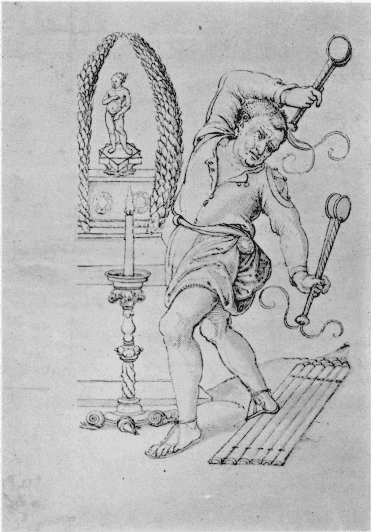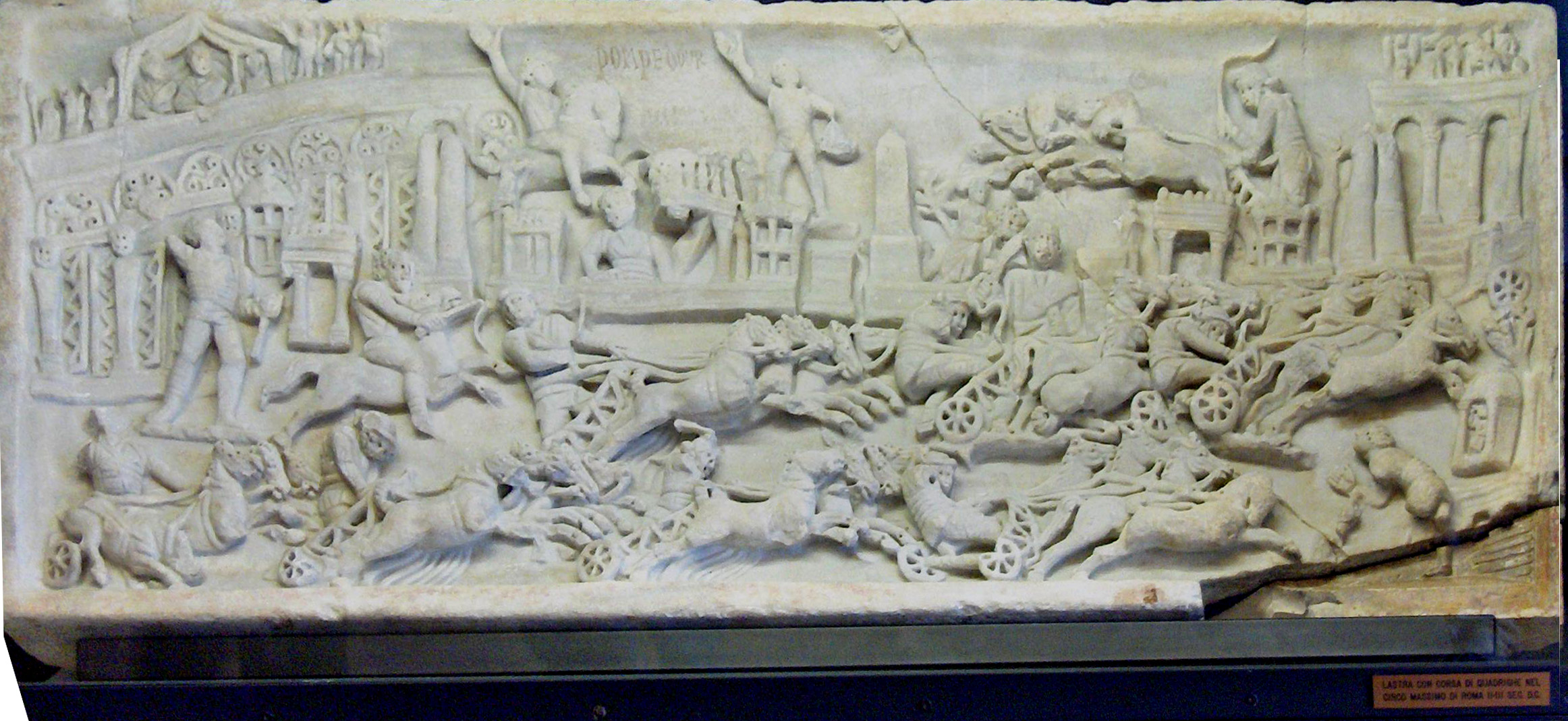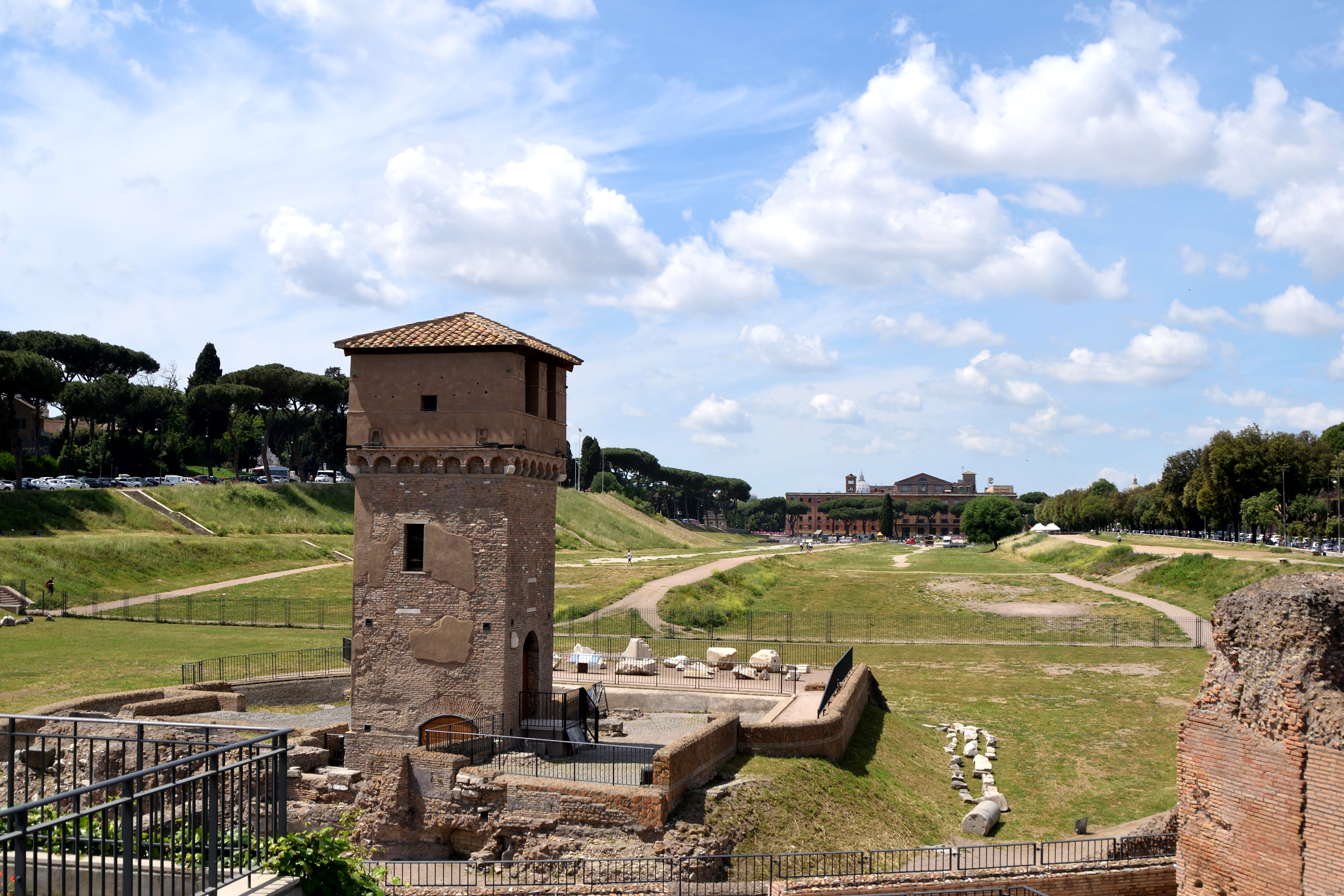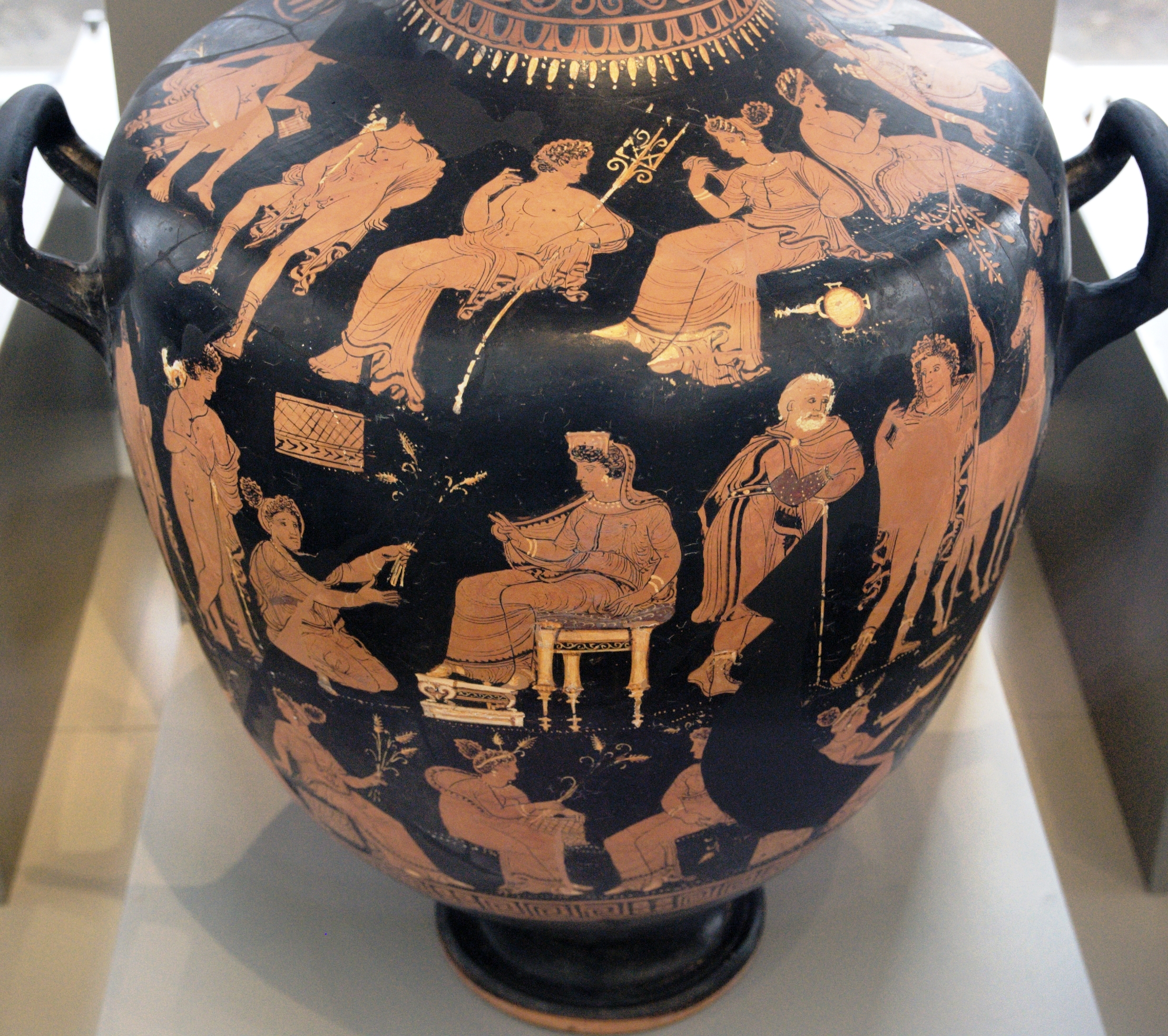|
Megalesia
The Megalesia, Megalensia, or Megalenses Ludi, was a festival celebrated in Ancient Rome from April 4 to April 10, in honour of Cybele, known to Romans as ''Magna Mater'' (Great Mother). The name of the festival derives from Greek ''Megale'' (μϵγάλη), meaning "Great". ''Ludi'' were the games or entertainments associated with religious festivals. Background Cybele's cult image was brought to Rome from Pessinus in 204 BC, along with the goddess's Gallae priestesses. As the "Great Mother of the Gods" and a purported ancestral Trojan goddess of Rome's ruling patrician caste, she was recruited to act on Rome's behalf in the war against Carthage. Her arrival was solemnized with a magnificent procession, sacred feasts ('' lectisternia''), games, and offerings to her at the temple of Victory on the Palatine Hill, where her image was temporarily housed. In 203 Cybele was promised a temple of her own. Games in her honour were celebrated in 193. Regular annual celebration of the M ... [...More Info...] [...Related Items...] OR: [Wikipedia] [Google] [Baidu] |
Cybele
Cybele ( ; Phrygian language, Phrygian: ''Matar Kubileya/Kubeleya'' "Kubileya/Kubeleya Mother", perhaps "Mountain Mother"; Lydian language, Lydian ''Kuvava''; el, Κυβέλη ''Kybele'', ''Kybebe'', ''Kybelis'') is an Anatolian mother goddess; she may have a possible forerunner in the earliest neolithic at Çatalhöyük, where statues of plump women, sometimes sitting, accompanied by lionesses, have been found in excavations. Phrygia's only known goddess, she was probably its national deity. Greek colonists in Asia Minor adopted and adapted her Phrygian cult and spread it to mainland Greece and to the more distant Magna Graeca, western Greek colonies around the 6th century BC. In Ancient Greece , Greece, Cybele met with a mixed reception. She became partially assimilated to aspects of the Earth-goddess Gaia (mythology) , Gaia, of her possibly Minoan civilization , Minoan equivalent Rhea (mythology) , Rhea, and of the harvest–mother goddess Demeter. Some city-states, nota ... [...More Info...] [...Related Items...] OR: [Wikipedia] [Google] [Baidu] |
Ludi
''Ludi'' (Latin plural) were public games held for the benefit and entertainment of the Roman people (''populus Romanus''). ''Ludi'' were held in conjunction with, or sometimes as the major feature of, Roman religious festivals, and were also presented as part of the cult of state. The earliest ''ludi'' were horse races in the circus (''ludi circenses''). Animal exhibitions with mock hunts (''venationes'') and theatrical performances (''ludi scaenici'') also became part of the festivals. Days on which ''ludi'' were held were public holidays, and no business could be conducted—"remarkably," it has been noted, "considering that in the Imperial era more than 135 days might be spent at these entertainments" during the year. Although their entertainment value may have overshadowed religious sentiment at any given moment, even in late antiquity the ''ludi'' were understood as part of the worship of the traditional gods, and the Church Fathers thus advised Christians not to pa ... [...More Info...] [...Related Items...] OR: [Wikipedia] [Google] [Baidu] |
Galli
A ''gallus'' (pl. ''galli'') was a eunuch priest of the Phrygian goddess Cybele (Magna Mater in Rome) and her consort Attis, whose worship was incorporated into the state religious practices of ancient Rome. Origins Cybele's cult may have originated in Mesopotamia, arriving in Greece around 300 BCE. It originally kept its sacred symbol, a black meteorite, in a temple called the Megalesion in Pessinus in modern Turkey. The earliest surviving references to the galli come from the '' Greek Anthology'', a 10th-century compilation of earlier material, where several epigrams mention or clearly allude to their castrated state. Stephanus Byzantinus (6th century CE) said the name came from King Gallus, while Ovid (43 BC – 17 CE) said it derived from the Gallus river in Phrygia. The same word (''gallus'' singular, ''galli'' plural) was used by the Romans to refer to Celts and to roosters, and the latter especially was a source of puns. Arrival in Rome The cult of Magna Mater arr ... [...More Info...] [...Related Items...] OR: [Wikipedia] [Google] [Baidu] |
Ancient Rome
In modern historiography, ancient Rome refers to Roman civilisation from the founding of the city of Rome in the 8th century BC to the collapse of the Western Roman Empire in the 5th century AD. It encompasses the Roman Kingdom (753–509 BC), Roman Republic (509–27 BC) and Roman Empire (27 BC–476 AD) until the fall of the western empire. Ancient Rome began as an Italic settlement, traditionally dated to 753 BC, beside the River Tiber in the Italian Peninsula. The settlement grew into the city and polity of Rome, and came to control its neighbours through a combination of treaties and military strength. It eventually dominated the Italian Peninsula, assimilated the Greek culture of southern Italy (Magna Grecia) and the Etruscan culture and acquired an Empire that took in much of Europe and the lands and peoples surrounding the Mediterranean Sea. It was among the largest empires in the ancient world, with an estimated 50 to 90 million inhabitants, roughly 20% of t ... [...More Info...] [...Related Items...] OR: [Wikipedia] [Google] [Baidu] |
Circus Maximus
The Circus Maximus (Latin for "largest circus"; Italian: ''Circo Massimo'') is an ancient Roman chariot-racing stadium and mass entertainment venue in Rome, Italy. In the valley between the Aventine and Palatine hills, it was the first and largest stadium in ancient Rome and its later Empire. It measured in length and in width and could accommodate over 150,000 spectators. In its fully developed form, it became the model for circuses throughout the Roman Empire. The site is now a public park. Events and uses The Circus was Rome's largest venue for ''ludi'', public games connected to Roman religious festivals. ''Ludi'' were sponsored by leading Romans or the Roman state for the benefit of the Roman people (''populus Romanus'') and gods. Most were held annually or at annual intervals on the Roman calendar. Others might be given to fulfil a religious vow, such as the games in celebration of a triumph. In Roman tradition, the earliest triumphal ''ludi'' at the Circus ... [...More Info...] [...Related Items...] OR: [Wikipedia] [Google] [Baidu] |
Publius Clodius Pulcher
Publius Clodius Pulcher (93–52 BC) was a populist Roman politician and street agitator during the time of the First Triumvirate. One of the most colourful personalities of his era, Clodius was descended from the aristocratic Claudia gens, one of Rome's oldest and noblest patrician families, but he contrived to be adopted by an obscure plebeian, so that he could be elected tribune of the plebs. During his term of office, he pushed through an ambitious legislative program, including a grain dole; but he is chiefly remembered for his scandalous lifestyle, which included violating the sanctity of a religious rite reserved solely for women, purportedly with the intention of seducing Caesar's wife; and for his feud with Cicero and Titus Annius Milo, Milo, which ended in Clodius' death at the hands of Milo's bodyguards. Background Born Publius Claudius Pulcher in 93 BC, Clodius was the youngest son of Appius Claudius Pulcher (consul 79 BC), Appius Claudius Pulcher, who became Roman ... [...More Info...] [...Related Items...] OR: [Wikipedia] [Google] [Baidu] |
Aulus Gellius
Aulus Gellius (c. 125after 180 AD) was a Roman author and grammarian, who was probably born and certainly brought up in Rome. He was educated in Athens, after which he returned to Rome. He is famous for his ''Attic Nights'', a commonplace book, or compilation of notes on grammar, philosophy, history, antiquarianism, and other subjects, preserving fragments of the works of many authors who might otherwise be unknown today. Name Medieval manuscripts of the ''Noctes Atticae'' commonly gave the author's name in the form of "Agellius", which is used by Priscian; Lactantius, Servius and Saint Augustine had "A. Gellius" instead. Scholars from the Renaissance onwards hotly debated which one of the two transmitted names is correct (the other one being presumably a corruption) before settling on the latter of the two in modern times. Life The only source for the life of Aulus Gellius is the details recorded in his writings. Internal evidence points to Gellius having been born betwe ... [...More Info...] [...Related Items...] OR: [Wikipedia] [Google] [Baidu] |
Roman Senate
The Roman Senate ( la, Senātus Rōmānus) was a governing and advisory assembly in ancient Rome. It was one of the most enduring institutions in Roman history, being established in the first days of the city of Rome (traditionally founded in 753 BC). It survived the overthrow of the Roman monarchy in 509 BC; the fall of the Roman Republic in the 1st century BC; the division of the Roman Empire in AD 395; and the fall of the Western Roman Empire in 476; Justinian's attempted reconquest of the west in the 6th century, and lasted well into the Eastern Roman Empire's history. During the days of the Roman Kingdom, most of the time the Senate was little more than an advisory council to the king, but it also elected new Roman kings. The last king of Rome, Lucius Tarquinius Superbus, was overthrown following a coup d'état led by Lucius Junius Brutus, who founded the Roman Republic. During the early Republic, the Senate was politically weak, while the various executive magistr ... [...More Info...] [...Related Items...] OR: [Wikipedia] [Google] [Baidu] |
Lucretius
Titus Lucretius Carus ( , ; – ) was a Roman poet and philosopher. His only known work is the philosophical poem ''De rerum natura'', a didactic work about the tenets and philosophy of Epicureanism, and which usually is translated into English as ''On the Nature of Things''—and somewhat less often as ''On the Nature of the Universe''. Lucretius has been credited with originating the concept of the three-age system that was formalised in 1836 by C. J. Thomsen. Very little is known about Lucretius's life; the only certainty is that he was either a friend or client of Gaius Memmius, to whom the poem was addressed and dedicated. ''De rerum natura'' was a considerable influence on the Augustan poets, particularly Virgil (in his ''Aeneid'' and ''Georgics'', and to a lesser extent on the ''Eclogues'') and Horace. The work was almost lost during the Middle Ages, but was rediscovered in 1417 in a monastery in Germany by Poggio Bracciolini and it played an important role both ... [...More Info...] [...Related Items...] OR: [Wikipedia] [Google] [Baidu] |
Greco-Roman Mysteries
Mystery religions, mystery cults, sacred mysteries or simply mysteries, were religious schools of the Greco-Roman world for which participation was reserved to initiates ''(mystai)''. The main characterization of this religion is the secrecy associated with the particulars of the initiation and the ritual practice, which may not be revealed to outsiders. The most famous mysteries of Greco-Roman antiquity were the Eleusinian Mysteries, which predated the Greek Dark Ages. The mystery schools flourished in Late Antiquity; Julian the Apostate in the mid 4th century is known to have been initiated into three distinct mystery schools—most notably the mithraists. Due to the secret nature of the school, and because the mystery religions of Late Antiquity were persecuted by the Christian Roman Empire from the 4th century, the details of these religious practices are derived from descriptions, imagery and cross-cultural studies. Much information on the Mysteries come from Marcus Ter ... [...More Info...] [...Related Items...] OR: [Wikipedia] [Google] [Baidu] |
Dionysius Of Halicarnassus
Dionysius of Halicarnassus ( grc, Διονύσιος Ἀλεξάνδρου Ἁλικαρνασσεύς, ; – after 7 BC) was a Greek historian and teacher of rhetoric, who flourished during the reign of Emperor Augustus. His literary style was ''atticistic'' – imitating Classical Attic Greek in its prime. Dionysius' opinion of the necessity of a promotion of paideia within education, from true knowledge of classical sources, endured for centuries in a form integral to the identity of the Greek elite. Life He was a Halicarnassian. At some time after the end of the civil wars he moved to Rome, and spent twenty-two years studying Latin and literature and preparing materials for his history. During this period, he gave lessons in rhetoric, and enjoyed the society of many distinguished men. The date of his death is unknown. In the 19th century, it was commonly supposed that he was the ancestor of Aelius Dionysius of Halicarnassus. Works His major work, entitled (), ... [...More Info...] [...Related Items...] OR: [Wikipedia] [Google] [Baidu] |
Cicero
Marcus Tullius Cicero ( ; ; 3 January 106 BC – 7 December 43 BC) was a Roman statesman, lawyer, scholar, philosopher, and academic skeptic, who tried to uphold optimate principles during the political crises that led to the establishment of the Roman Empire. His extensive writings include treatises on rhetoric, philosophy and politics, and he is considered one of Rome's greatest orators and prose stylists. He came from a wealthy municipal family of the Roman equestrian order, and served as consul in 63 BC. His influence on the Latin language was immense. He wrote more than three-quarters of extant Latin literature that is known to have existed in his lifetime, and it has been said that subsequent prose was either a reaction against or a return to his style, not only in Latin but in European languages up to the 19th century. Cicero introduced into Latin the arguments of the chief schools of Hellenistic philosophy and created a Latin philosophical vocab ... [...More Info...] [...Related Items...] OR: [Wikipedia] [Google] [Baidu] |









